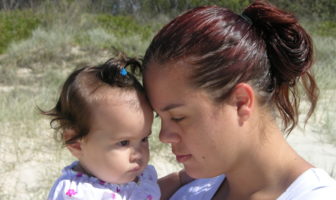This personal article talks about dealing with the aftermath of a sudden death of a partner while also suddenly being thrown into single parenthood of two young kids.

Talking to your Child about Death and Grief
The holidays are a time when family and friends come together in celebration. The holidays can also be difficult for many if you are grieving the loss of a loved one, which, unfortunately, has become a more common experience during the Covid-19 Pandemic. While children are aware of death, they don’t always understand death or how to process their emotions. You can use this opportunity to speak with your children about death and grief and help them cope with death and express how they feel in healthy ways.
Children under the age of 5 may not understand the permanency of death or even remember the person who has passed. It is important to be honest with your child about the death of a loved one and use clear language to relay the fact that this person is dead and will not be coming back. Avoid saying someone “went to sleep,” which can confuse your child or even scare them. Instead, help your child build healthy coping skills by being direct, answering questions, and allowing the space to grieve.
Children at any age may feel guilty or blame themselves for the loss of someone else. It’s helpful to reassure any child after disclosing the death of a loved one that their passing had nothing to do with anything a child might have said or done. Help your child find ways to remember the good times and memories they may have had with a loved one. Bake grandpa’s favorite cookie recipe or play grandma’s favorite card game over the holidays. Children find reassurance in routines and can understand that life does go on, even when they lose someone close to them.
It is important to understand that children deal with grief in a variety of ways. Be prepared for intense emotional reactions from your child, such as anger and sadness. Your child may also be silent and seem unaffected by the news. Remember that children play to process their emotions. All these reactions are developmentally normal and expected. As always, contact your child’s pediatrician if you have any questions or concerns about their health, both physical and mental.
For additional guidance on how to talk to your child about a death of a loved one, check out this article by UNICEF.




